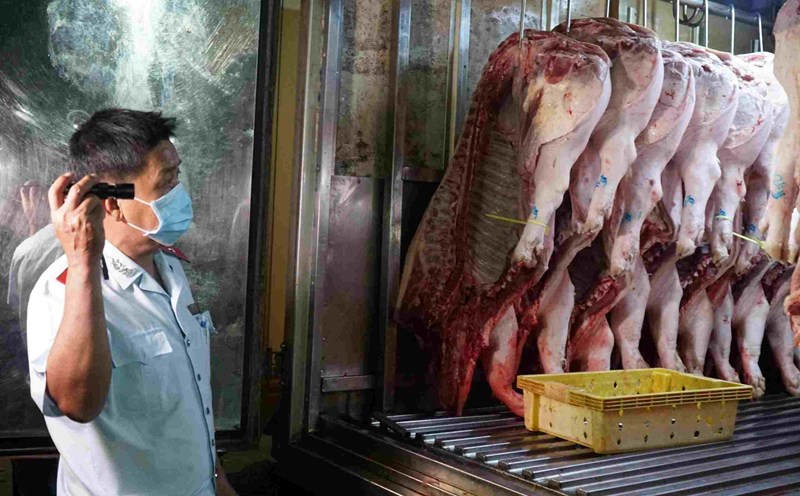From the end of December 2024 to February 22, 2025, Da Nang city established 3 interdisciplinary inspection teams to inspect food production and trading establishments in the city, focusing on products serving Tet.
Notably, every week, Da Nang will publicly announce establishments and individuals who have been administratively fined for violating food safety regulations in order to warn, deter, and prevent illegal food production and trading.
First of all, it must be affirmed that establishing food safety inspection teams during Tet is not new; every locality has been doing it and is doing it every year.
The new and notable thing in Da Nang is the "naming and shaming" - publicly announcing weekly the list of violating establishments, to increase deterrence and transparency in the inspection process.
This is a commendable measure, but it is still not strong enough to completely solve the problem of food safety violations, which is always hot and painful throughout the country.
Most recently, authorities in Hue, Da Nang, and Dak Lak simultaneously discovered many businesses producing sausages containing borax and bean sprouts containing toxins in large quantities being sold on the market.
To be truly effective, handling violations needs to be as severe as possible to help prevent recurrence of violations and create a healthy, safe business environment for consumers.
In addition to "naming and shaming" and administrative penalties, if there are sufficient factors, violators must be criminally prosecuted, as Da Nang and Dak Lak have just done with the production of sausages and bean sprouts containing borax and toxins.
Finally, food safety violations by businesses are a daily occurrence. Therefore, inspections and “naming and shaming” – publicizing the list of violators – need to be carried out regularly and continuously, all year round, not just during Tet or major festivals.
Authorities need to strengthen propaganda work, raise people's awareness of food safety; and raise awareness and ethics of food production and business owners by complying with food hygiene and safety regulations, not at all costs to make money.
Consumers need to be fully equipped with knowledge and always update information to be able to protect themselves from poor quality products.













